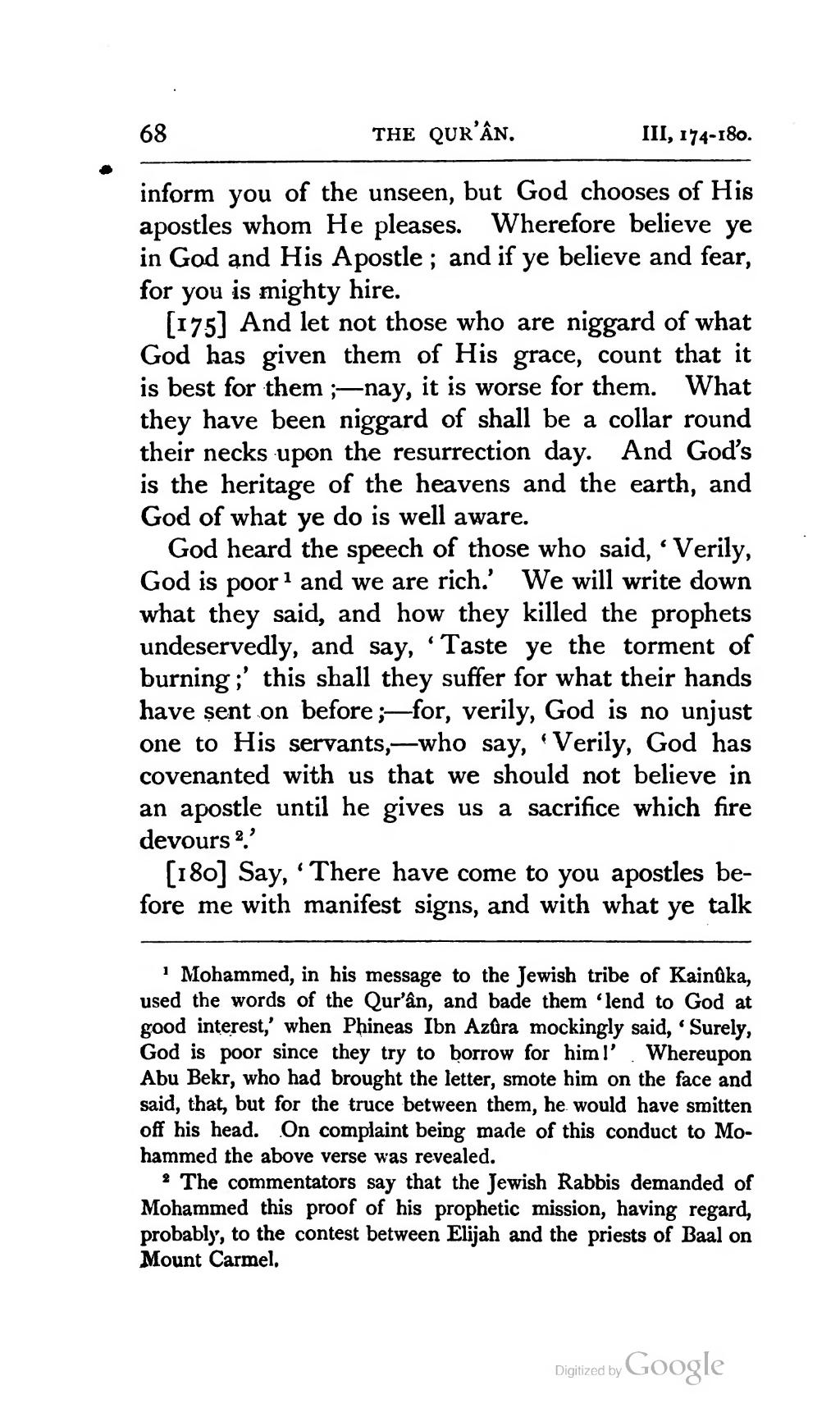inform you of the unseen, but God chooses of His apostles whom He pleases. Wherefore believe ye in God and His Apostle ; and if ye believe and fear, for you is mighty hire.
175 And let not those who are niggard of what God has given them of His grace, count that it is best for them ; — nay, it is worse for them. What they have been niggard of shall be a collar round their necks upon the resurrection day. And God’s is the heritage of the heavens and the earth, and God of what ye do is well aware.
God heard the speech of those who said, ‘ Verily, God is poor[1] and we are rich.’ We will write down what they said, and how they killed the prophets undeservedly, and say, ‘ Taste ye the torment of burning ;’ this shall they suffer for what their hands have sent on before ; — for, verily, God is no unjust one to His servants, — who say, ‘ Verily, God has covenanted with us that we should not believe in an apostle until he gives us a sacrifice which fire devours[2].’
180 Say, ‘ There have come to you apostles before me with manifest signs, and with what ye talk
- ↑ Mohammed, in his message to the Jewish tribe of Kainuka, used the words of the Qurʼân, and bade them ‘ lend to God at good interest,’ when Phineas Ibn Azûra mockingly said, ‘ Surely, God is poor since they try to borrow for him !’ Whereupon Abu Bekr, who had brought the letter, smote him on the face and said, that, but for the truce between them, he would have smitten off his head. On complaint being made of this conduct to Mohammed the above verse was revealed.
- ↑ The commentators say that the Jewish Rabbis demanded of Mohammed this proof of his prophetic mission, having regard, probably, to the contest between Elijah and the priests of Baal on Mount Carmel.
